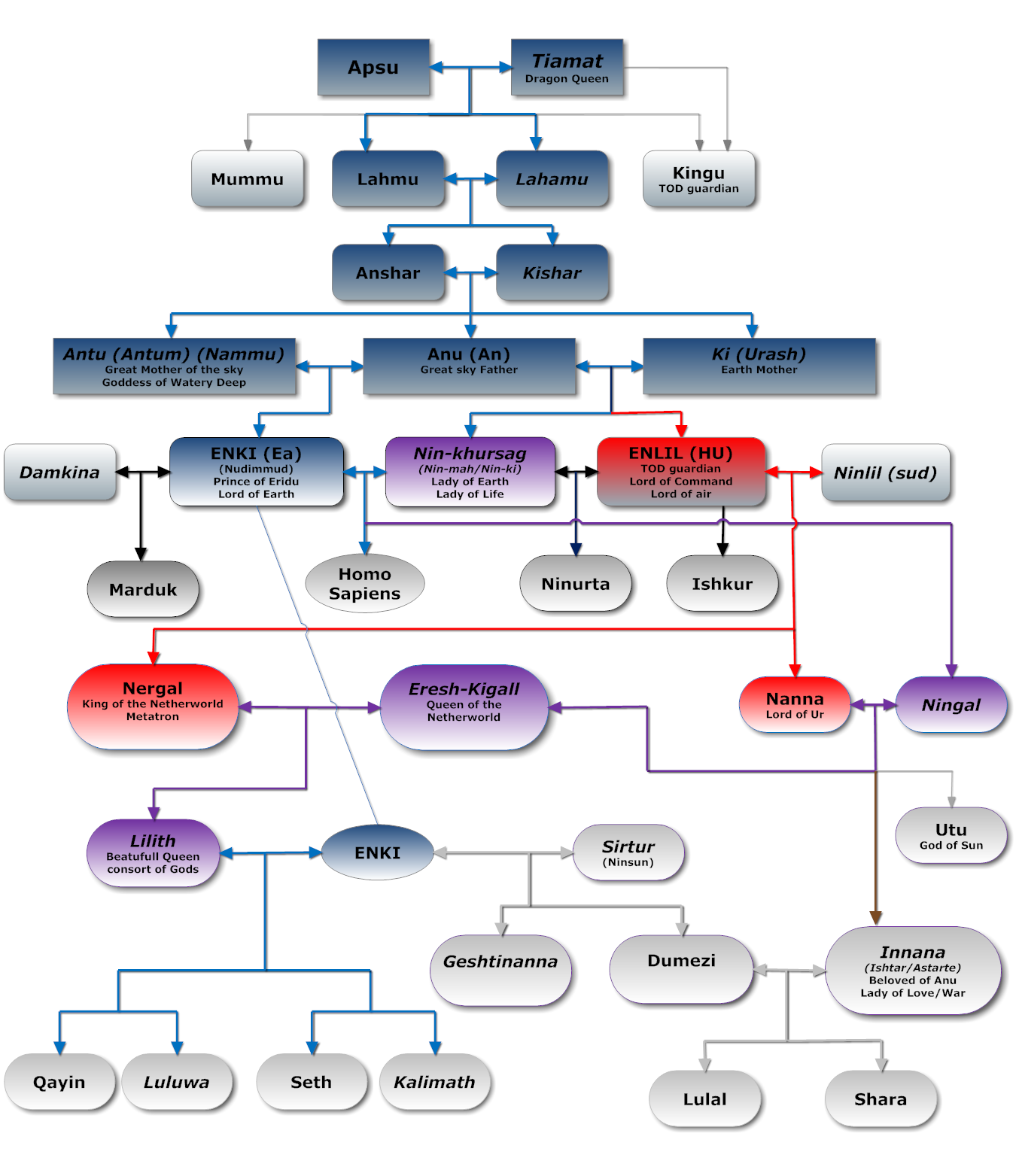
Anunnaki Gallery
Family Fujin was born of Izanami, one of Japan's primordial kami, and present in Yomi, the Underworld. His siblings are the many oni, or demons, of the underworld, including his brother Raijin. He is uncle of Raijin's son Raitaro. Family Tree Parents Siblings Mythology

Pin on Monsters and cool stuff
The following is a family tree of the emperors of Japan, from the legendary Emperor Jimmu to the present monarch, Naruhito. [1] Modern scholars have come to question the existence of at least the first nine emperors; Kōgen's descendant, Emperor Sujin (98 BC - 30 BC?), is the first for whom many agree that he might have actually existed. [2]

Japanese emperors family tree r/UsefulCharts
Family Mythology Pop Culture Japanese God Susanoo By Gregory Wright Last updated on Nov 29, 2022 Overview Susanoo-no-Mikoto is the Japanese god of the sea and storms. A powerful and boisterous guardian kami, Susanoo's moods are often as temperamental as his actions are chaotic.

11 Most Prominent Japanese Gods, You Must learn about
Raijin ( 雷神, lit. "Thunder God"), also known as Kaminari-sama (雷様), Raiden-sama (雷電様), Narukami (鳴る神), Raikou (雷公), and Kamowakeikazuchi-no-kami is a god of lightning, thunder, and storms in Japanese mythology and the Shinto religion. [1]

Japanese Mythology your guide to the gods of Japan Japanese
Mythology Ebisu has many origins, all of which have lead to his current status as one of the Seven Lucky Gods. Origins of Hiruko This child they placed in a boat of reeds, and let it float away.-
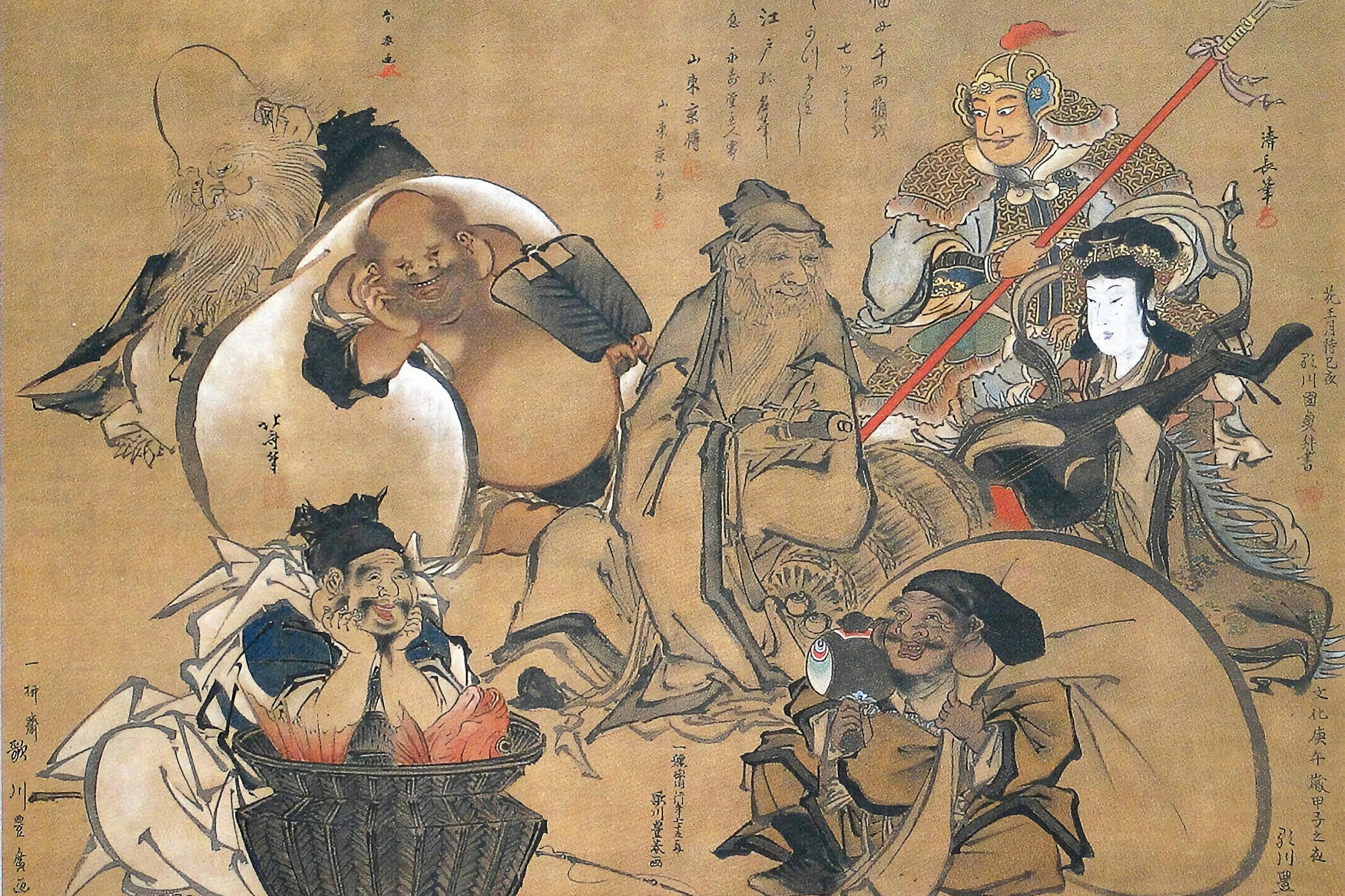
Japanese Gods Mythopedia
Daikokuten Highly revered Japanese household deity, god of luck and fortune-seekers View Ebisu Smiling Japanese god of luck, wealth, and prosperity, patron of fishermen. View Fujin Japanese god of the wind, frighteningly powerful and neither good nor evil. View Fukurokuju Japanese god of wealth and longevity, representing the Southern Polestar.
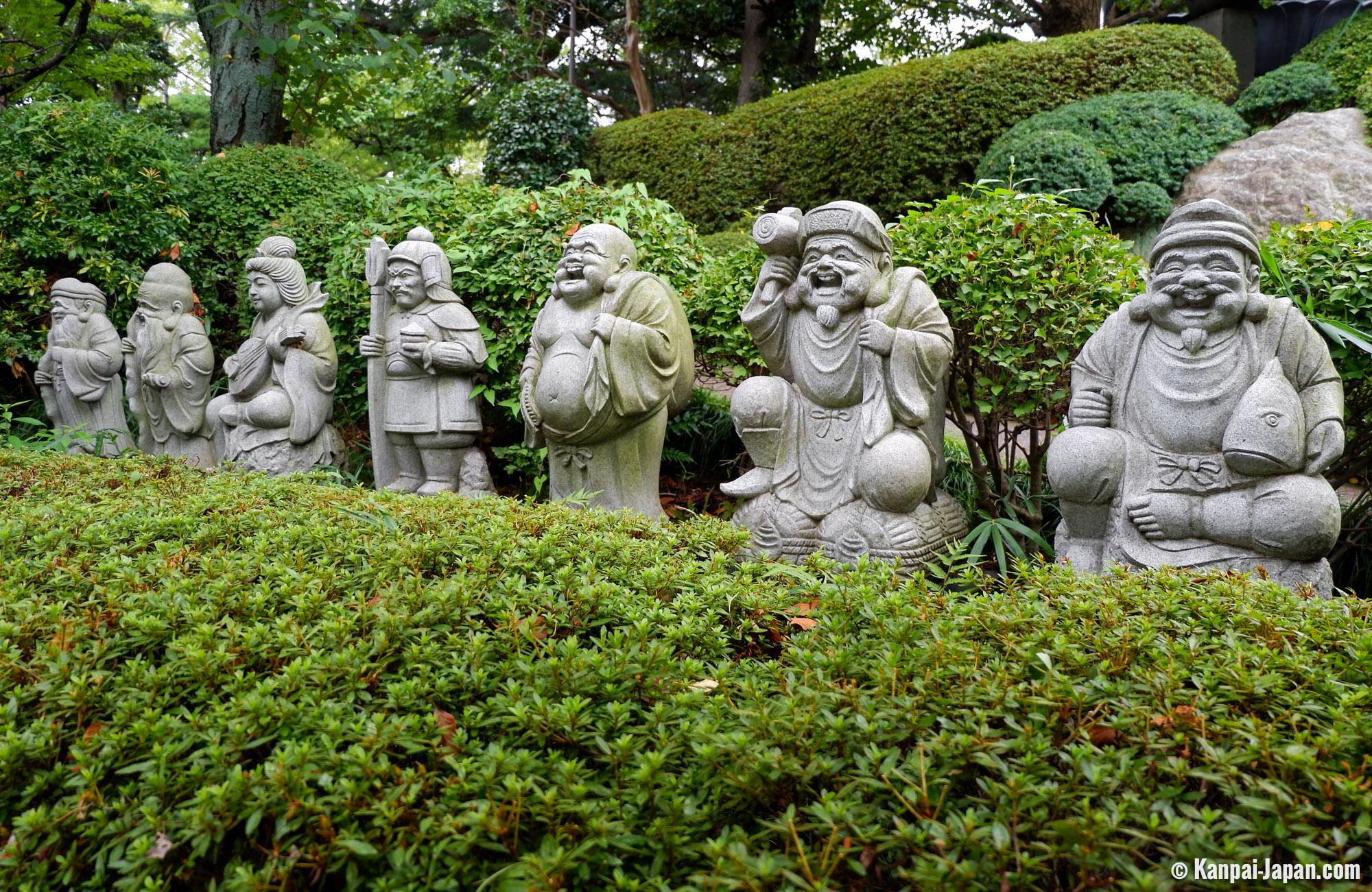
The Seven Lucky Gods Shichifukujin Gods in Japan
Amaterasu, also known as Amaterasu Ōmikami (天照大御神, 天照大神) or Ōhirume no Muchi no Kami (大日孁貴神), is the goddess of the sun in Japanese mythology.Often considered the chief deity (kami) of the Shinto pantheon, she is also portrayed in Japan's earliest literary texts, the Kojiki (c. 712 CE) and the Nihon Shoki (720 CE), as the ruler (or one of the rulers) of the.
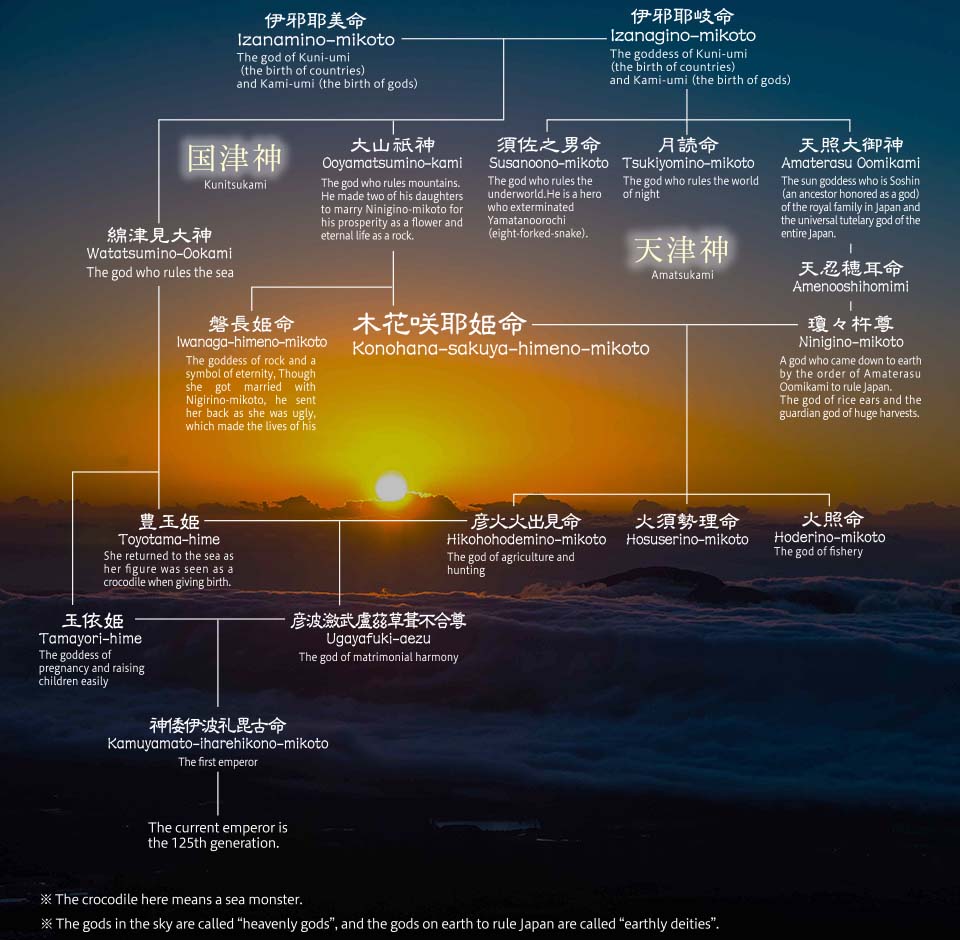
The goddess of Mt. Fuji SUBASHIRI Mt. Fuji Pilgrimage Tour
This is a family tree of Japanese deities. It covers early emperors until Emperor Ojin, the first definitively known historical emperor, see family tree of Japanese monarchs for a continuation of the royal line into historical times Key Pink is female. Blue is male. Grey means other or unknown. Clans, families, people groups are in green.

Japanese gods and their purposes Japanese mythology, Mythology, Deities
Hi-no-yagi-haya'o (火之夜藝速男神) = Kagu-tsuchi, also known as Hi-no-kaga-biko (火之炫毘古神) and Hi-no-kagu-tsuchi (火之迦具土神), male deity, Kami of fire and the hearth. Gods born during the agony and death of Izanami. During Kagutsuchi 's birth, Izanami's genitals were burned and she was mortally wounded.
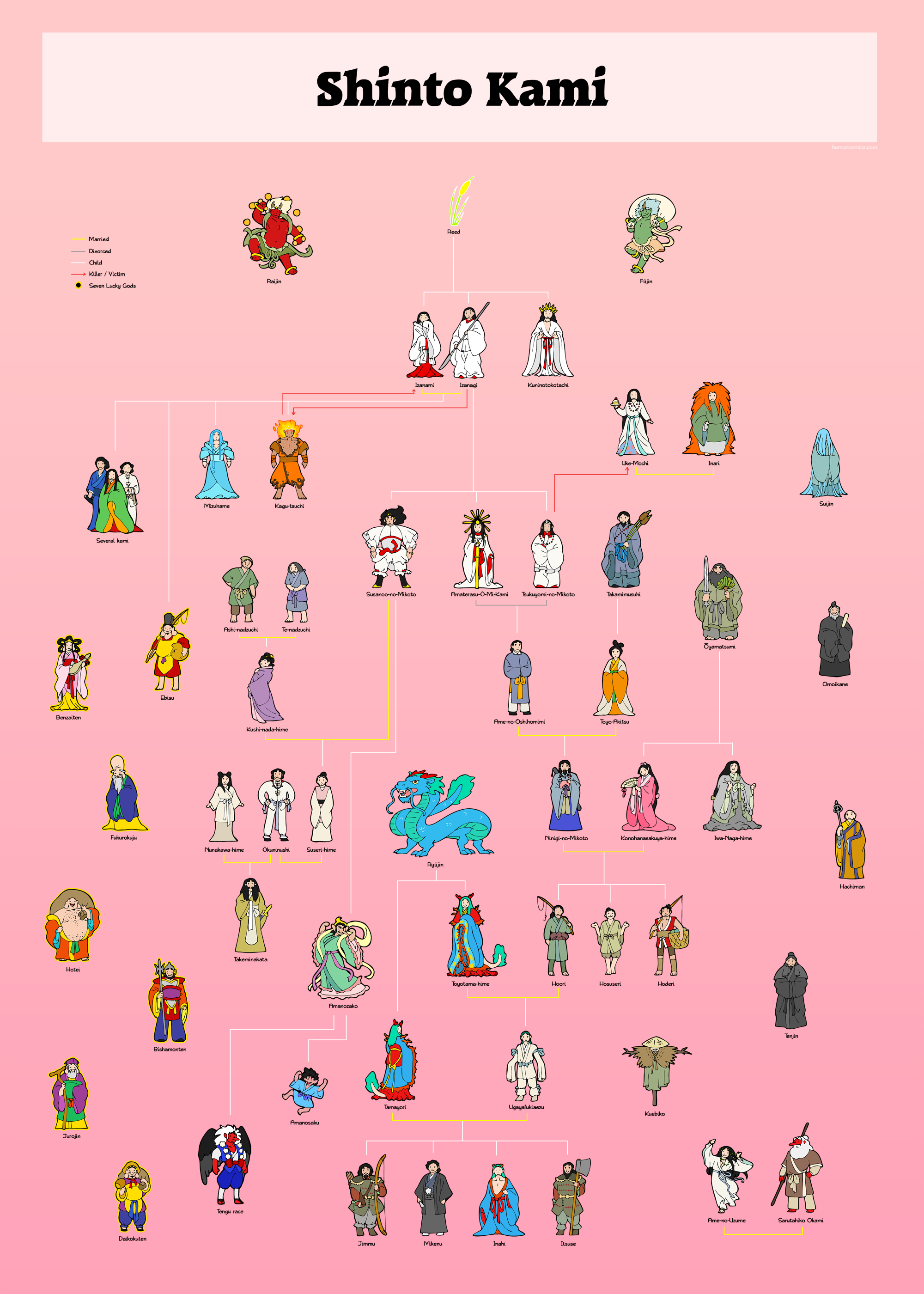
Shinto Kami Scandinavia and the World
Meaning of the name: Lord of the August Center of Heaven Family: The literal creator of 'family'. The very first Japanese god, or first recognized Zöka Sanshin, goes by the name of Ame-no-minakanushi. Talk about tongue twisters.
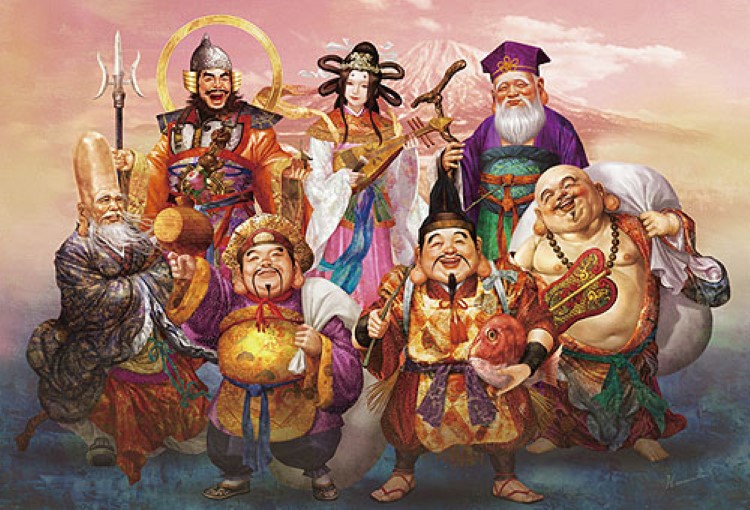
Seven Lucky Gods of Japan God u Love
Hachiman ( 八幡神) is the god of war and the divine protector of Japan and its people. Originally an agricultural deity, he later became the guardian of the Minamoto clan. His symbolic animal and messenger is the dove. Inari Ōkami ( 稲荷大神) The god or goddess of rice and fertility. Their messengers and symbolic animal are foxes.

7 Shinto Kami You’ll Meet in Japan
This is a family tree of Japanese deities. It covers early emperors until Emperor Ojin, the first definitively known historical emperor, see family tree of Japanese monarchs for a continuation of the royal line into historical times Key Pink is female. Blue is male. Grey means other or unknown. Clans, families, people groups are in green.

Mythologie japonaise
Family tree of the imperial house of japan.png 2,134 × 5,597; 1.92 MB Family Tree of the Imperial House of Japan.svg 1,440 × 5,247; 1.25 MB Kotoamatsukami.png 618 × 314; 104 KB Land Creation myths of Japan.svg 468 × 540; 180 KB Ohokuninushi family tree.png 441 × 993; 30 KB Susanowo family tree.png 444 × 817; 18 KB 阿智家系図.jpg 503 × 314; 89 KB

The Japanese Gods An Introduction to the Shinto Pantheon and More
Family Tree Parents Siblings Consorts Wife Izanami Children Mythology The tale of Izanagi is central to the Kuniumi, the origins of Japan told in many traditions. Birth of Japan and the Kami From the void came Heaven and Earth. In the beginning, however, only Heaven was populated.
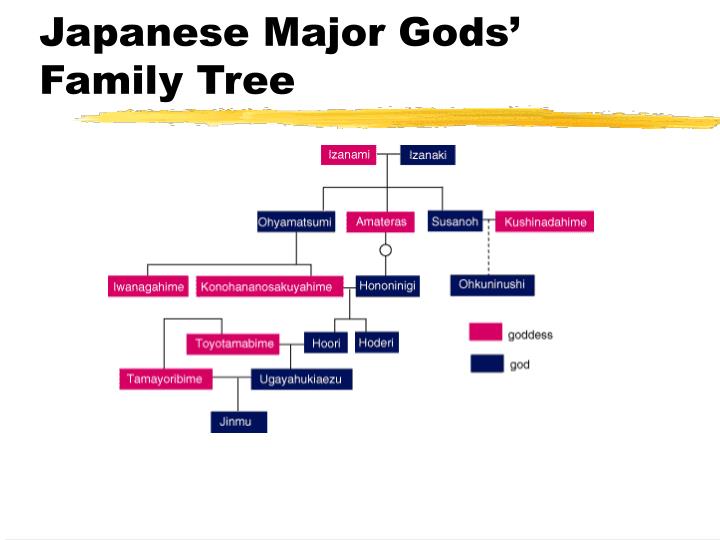
PPT Japanese Mythology PowerPoint Presentation ID1201245
Content of this Article The Most Popular Japanese Gods and Goddesses The Japanese pantheon of gods and goddesses is populated by a plethora of interesting and powerful figures that have shaped the mythology and culture of Japan.
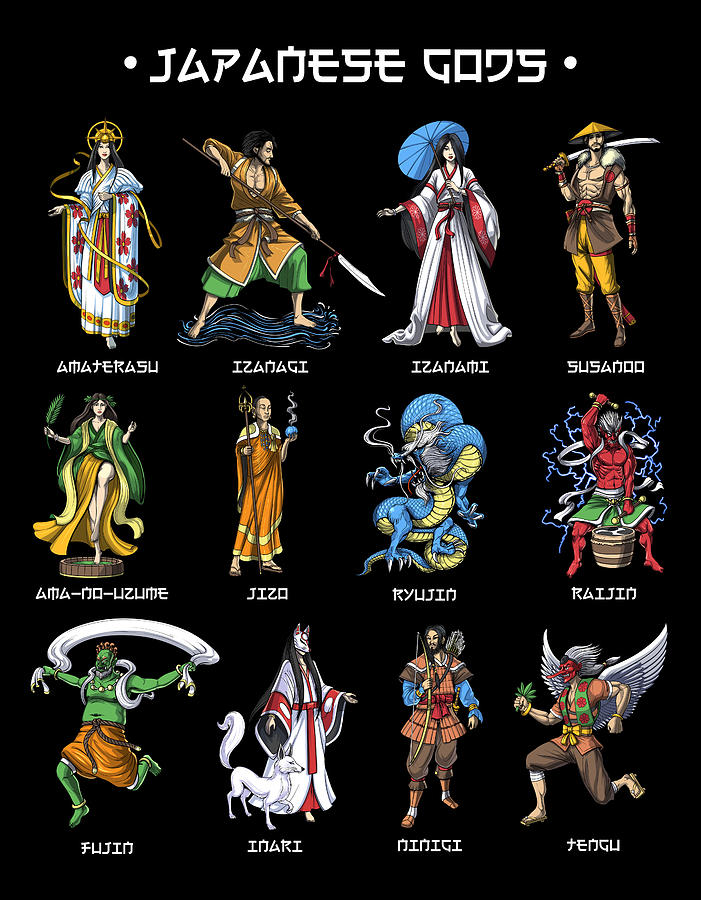
Japanese Mythology Gods Digital Art by Nikolay Todorov Pixels
Yebisu - The Japanese God of Luck and Fishermen Kagutsuchi - The Japanese God of Destructive Fire Amaterasu - The Japanese Goddess of the Rising Sun Tsukiyomi - The Japanese God of the Moon Susanoo - The Japanese God of Seas and Storms Raijin and Fūjin - The Japanese Gods of Weather Ame-no-Uzume - The Japanese Goddess of Dawn and Dancing